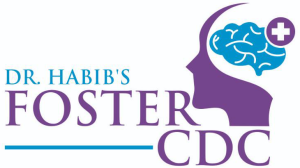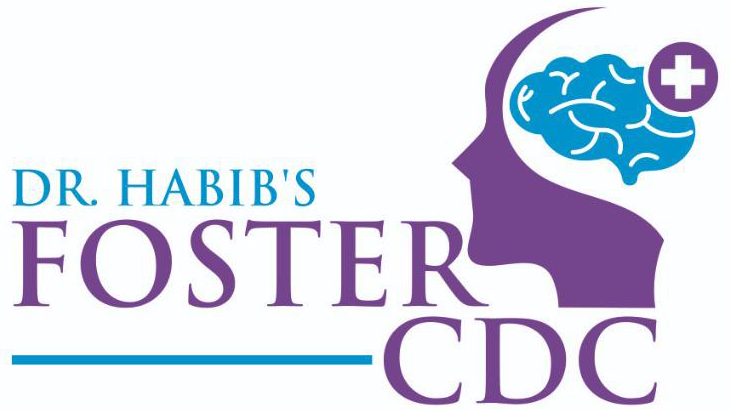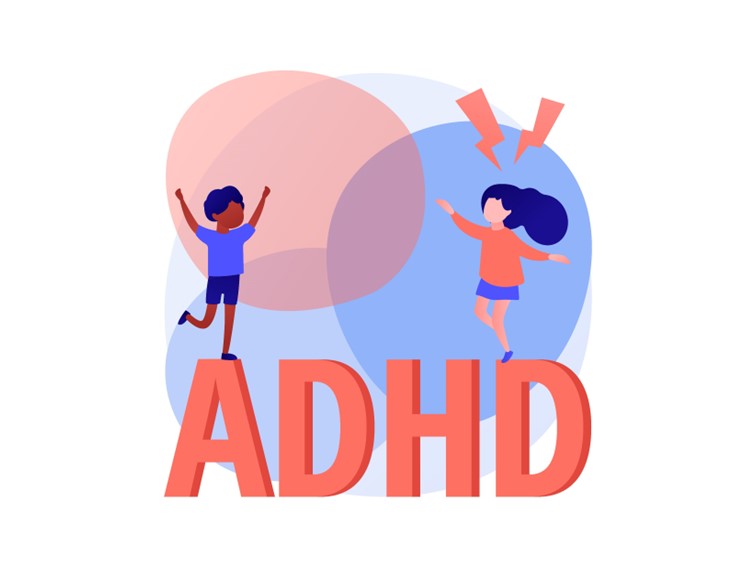Neurodevelopmental disorders are neurological problems that interfere with the acquisition, retention or application of specific skills or sets of information. These disorders may be due to problems with memory, attention, social interaction, problem-solving ability, perception, and language. In the early stages, these disorders can be easily manageable with educational and behavioural interventions, but once they become more severe and established, the affected children may require more support and extensive care.
Neurodevelopmental disorders include ADHD, Autism, learning disabilities such as dyslexia, dyscalculia, etc.
Neurodevelopmental disorder symptoms
An early warning signs of neurodevelopmental disorders in Infants:
Infants at risk of developing neurodevelopmental disorders have poor attention and visual abilities – which the parents can easily track.
Their symptoms can be easily detected by a visual orientation task and parent report (Infant Behaviour Questionnaire). You can keep a track of these symptoms with the help of a specialist.
Sleeping and Sucking Difficulties
During the first year of their life infants who are at risk of neurodevelopmental disorders or developmental delays show sucking and sleeping difficulties
Low birth weight infants with sucking and sleeping difficulties are at increased risk of developmental delay. Parents should pay attention here.
Inappropriate Use of Objects /Unusual Gaze
At 18 months, infants show unusual functional play behaviour (greater level of non-functional play) with differed non-social gaze, inappropriate use of the object. They show unusual behaviour in the exploratory activity with the object and symbolic play.
Children between 9-12 months who are at risk of developmental disabilities differ in the play with objects’ flexibility, variability and appropriateness.
Auditory Abnormalities
Abnormalities in auditory processing are observed in infants aged 24 months with unusual visual inspection and aversive response to auditory stimulation.
Neurodevelopmental disorder symptoms
Early Warning Signs of ADHD
Emotional Turmoil (It is often seen in children with ADHD)
Children may have outbursts of anger and temper tantrums.
They show restless behaviour, impulsivity, forgetfulness, inability to concentrate, excessive daydreaming.
Unusual and disruptive sleep patterns.
Children avoid mental tasks that need extended mental efforts.
They have trouble following instructions and therefore make mistakes.
Kids have trouble getting organized.
They don’t seem to wait for their turn – instead, they often interrupt others.
Children with ADHD who grow Older
Kids who get older – don’t exhibit the same sort of self-control when compared to other children of their own age. Their behaviour makes them look immature compare to other kids of their own age.
Children with ADHD who grow older may have the following problems:
- Time management
- Focussing on homework and school assignments
- Reading social signs and stimulus
- Safe driving
- Compromising with peers
- Maintaining personal hygiene
- Managing works and home-based activities
What should the parents do?
It is the responsibility of the parents to keep an eye on several aspects of development. If they notice any unusual patterns in the developmental domains such as attention, visual, sensory, social, temperament, language, motor, visual processing, play, sleeping and feeding patterns, they should consider them as early warning signs during the first three years of their child’s development and approach a paediatric neurologist as early as possible.
Bottom Line
Evidence shows that the early detection of neurodevelopmental disorders in infants and toddlers led to improved cognitive and language skills when they underwent through early, appropriate and individualized interventions. In this regard, parents and paediatric neurologists play an important role.
Paediatric neurologists play a key role in the early recognition of neurodevelopmental disorders when parents approach them with some early warning signs and symptoms in their kids. The identification is based on the routine assessment in the paediatric surveillance protocol. Parents should go for programmed well-baby check-ups – which are based on evidence-based monitoring.
It is better to follow a holistic approach while assessing a child’s developmental domains rather than considering each domain in isolation. This is important for a paediatric neurologist while assessing a child for developmental issues.
You can meet Dr Habib Pathan if you think that your child could be at risk of developing neurological disorders based on the neurodevelopmental disorder symptoms you notice in your child. Book an appointment here: 9391138499



